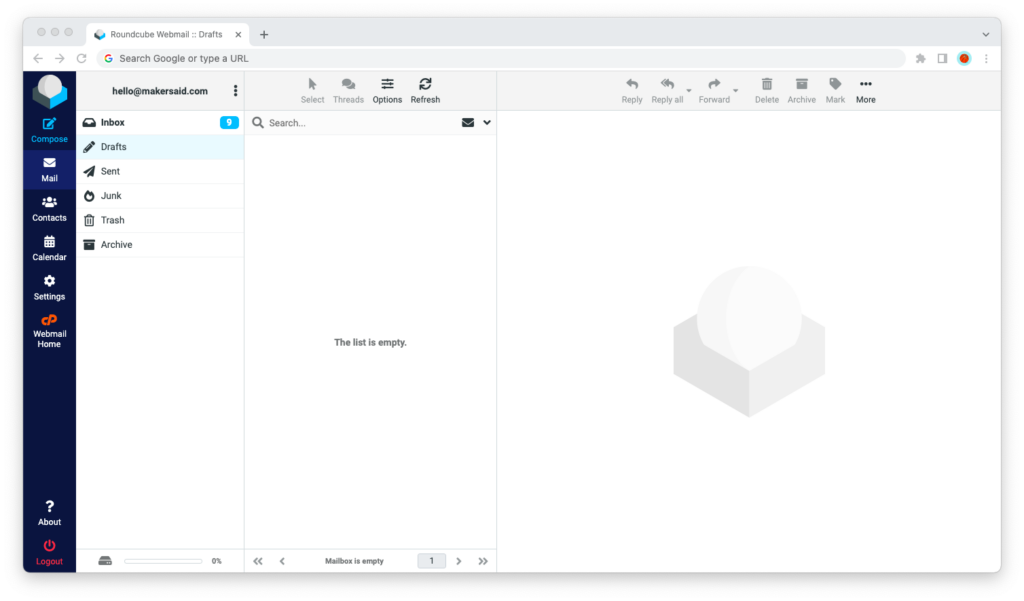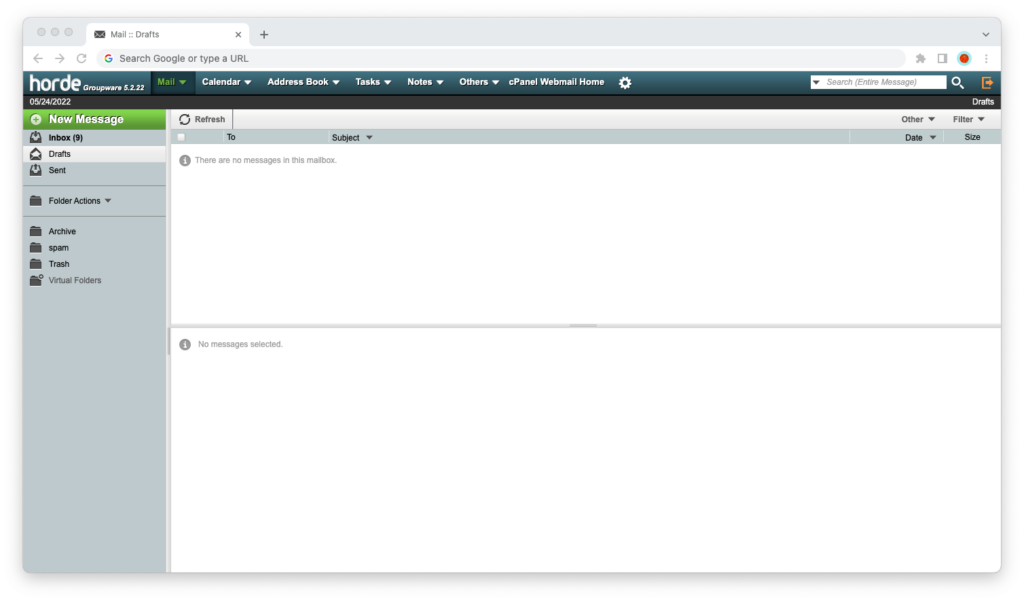When you install cPanel on your Linux server—or get access to the cPanel for a server from your web hosting provider—you will find that you can choose between two email clients that you can use right out of the box: Horde and Roundcube.
Which one should you choose?
Both Roundcube and Horde are free, open-source, and readily available email clients in cPanel that you can access from a web browser. Roundcube is the better option if you’re looking for a simple user experience, while Horde offers more features for collaboration in large organizations.
This guide will walk you through the pros and cons of each, and introduce you to a number of additional web-based email clients worth considering.
Roundcube

Roundcube is a free and open-source email client with a clean and simple user interface that you can access through your browser and use across devices.
If you’re looking for a user-friendly, web-based email client with all the features you need for email communication, calendar management, and contact management, Roundcube is the best choice for you.
Roundcube has all the basic features for composing email messages, including a plain text editor, a rich text editor, the ability to add and receive attachments, and a spell checker. It also has search, folders, filters, and threaded conversations.
What sets Roundcube apart from Horde (and other email clients that server administrators can install on cPanel) is its sleek and modern user interface.
This wasn’t always the case, and older versions of Roundcube looked outdated. Fortunately, the Roundcube team seems to have taken note as they introduced the Elastic theme for its email client, finally bringing it into the 21st century.
Roundcube’s interface has been translated into 80 languages. The responsive skin works on all devices, from phones and tablets to laptops and stationary computers, and comes with a light and dark mode.
Other notable Roundcube features include multiple sender identities, canned email responses, and full integration with desktop email clients.
You can check out all Roundcube features here.
Horde

Horde is a free and open-source email client with an advanced user interface and a comprehensive feature set for enterprise users.
If you’re looking for a feature-rich and web-based email client for email, calendar, address book, notes, and to-do lists—as well as an internal news feed with events—Horde is the best choice for you.
Horde has everything you need to compose emails, including a plain-text and a rich-text editor, the ability to add and receive attachments, and a spell checker. Search, folders, filters, tags, threaded conversations, and a number of other features you’d expect from any decent email client are also present.
What Horde lacks in usability, it makes up for in functionality. Features such as email groups and distribution lists, subscription to group calendars, and scheduling meetings make Horde the right email client for teams looking for a full-fledged email productivity suite.
Other notable Horde features include keyboard shortcuts, downloading of all message attachments as a .zip file, and forwarding of multiple email messages at once.
You can check our all Horde features here.
How to Choose
There’s a reason cPanel chose Roundcube as its default email client. It’s a web-based email client with a clean and intuitive interface and all the basic features you need for email collaboration.
When in doubt, opt for Roundcube. Unless, of course, your team or organization has specific reasons to opt for Horde.
Other Options to Consider
If you’re looking for open source alternatives to Gmail and Outlook, but Horde and Roundcube don’t meet your needs for one reason or another, what other options should you consider?
Squirrelmail is a free and open-source email client that positions itself as “webmail for nuts.”
NextCloud is an open-source productivity platform that stands out for its ease of use, world-class enterprise support, and impressive list of customers.
Zimbra is another open-source email platform with on-premises and cloud-hosted plans for the enterprise. If you’re looking to migrate away from more expensive software, it’s worth considering.

